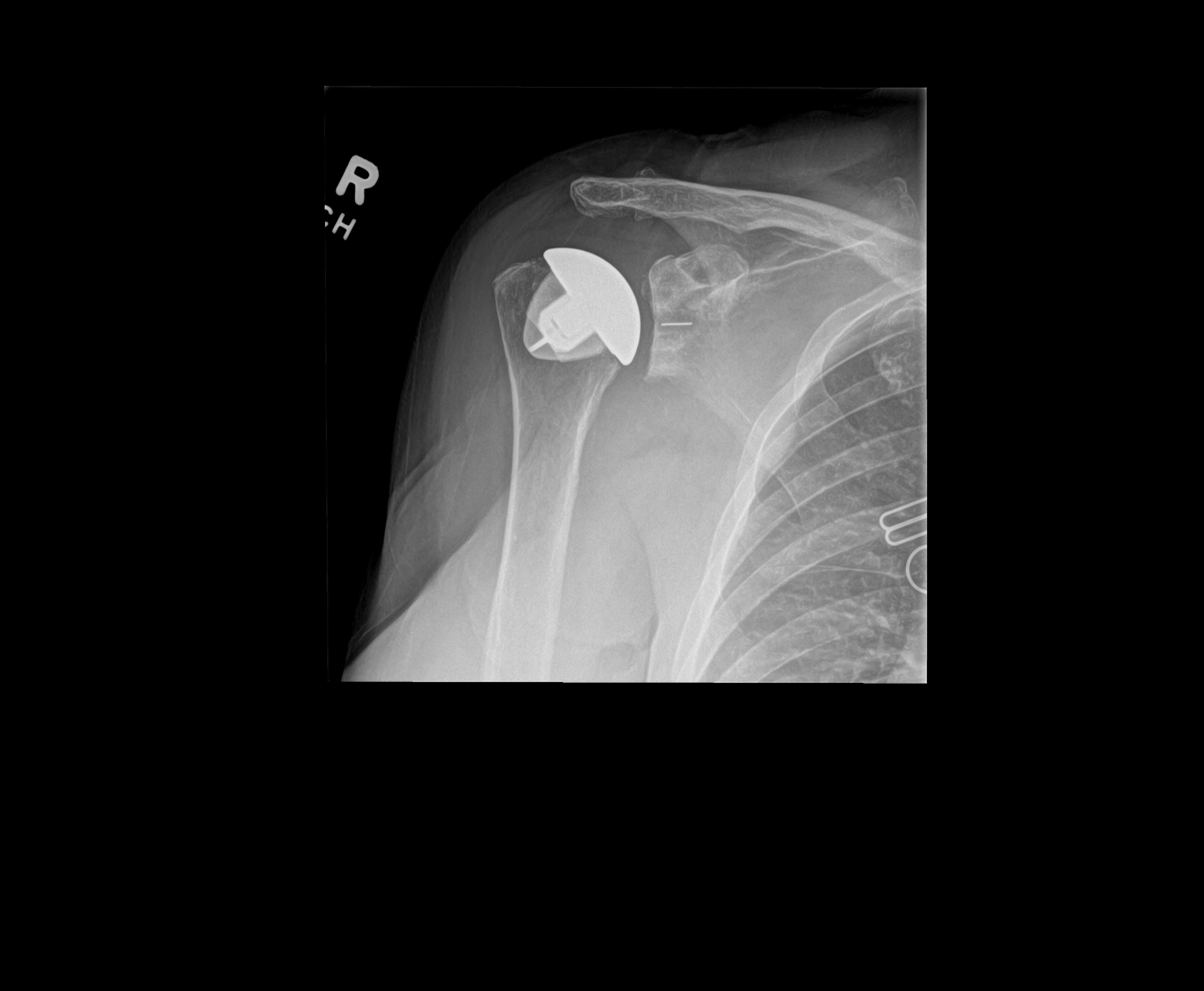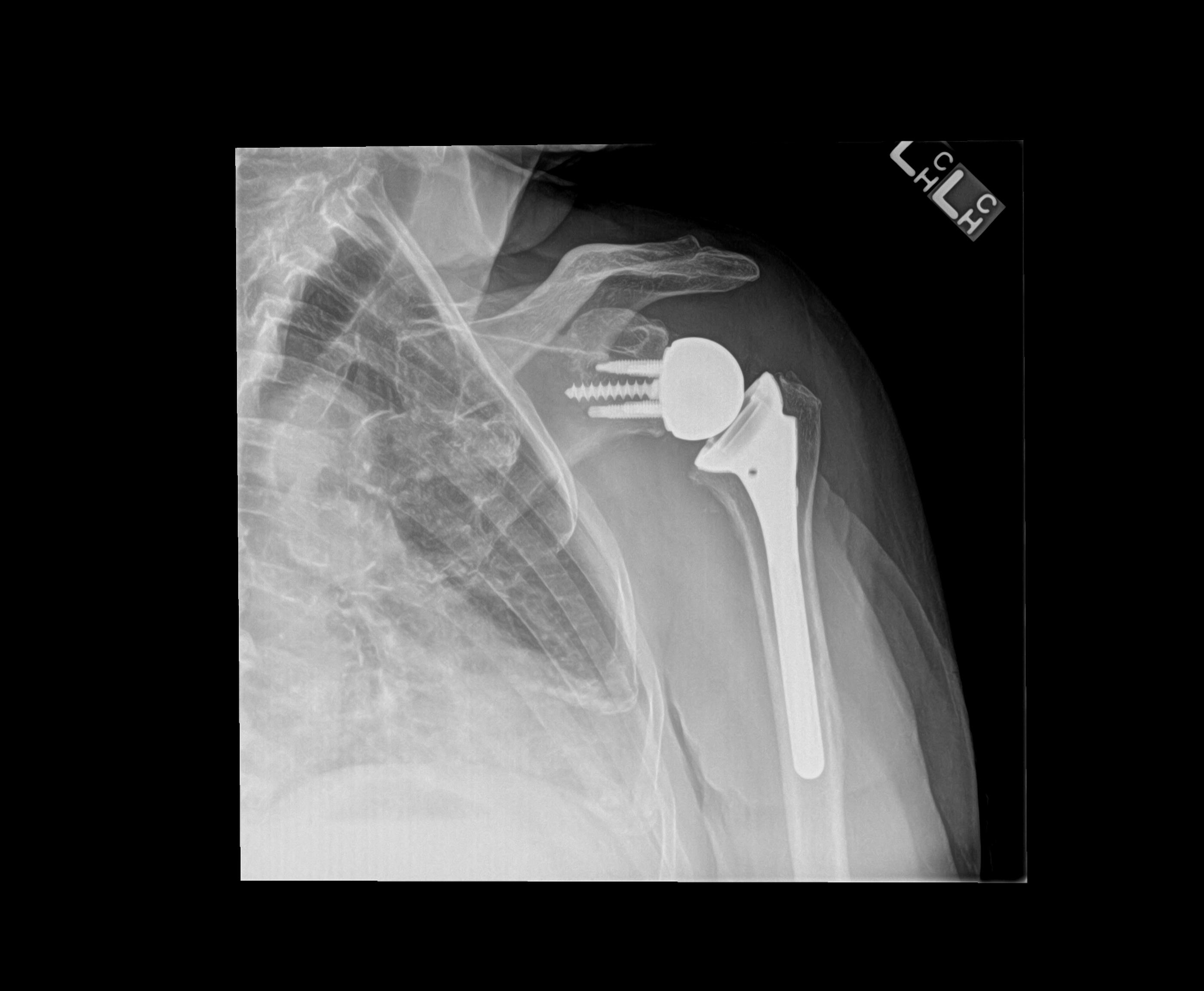Shoulder Replacement Surgery
Shoulder replacement surgery can be a great option to improve shoulder function for patients with joint pain from arthritis, non-repairable rotator cuff or fractures. Initial treatments for shoulder pain are typically nonsurgical, including anti-inflammatory medications, injections, and exercises. However, if these more conservative treatments do not provide sufficient pain relief and you are unable to participate in normal activities, shoulder replacement may be recommended.
At Integrity Orthopedics, Dr. Edward Joy has over 10 years of experience with shoulder surgery, including shoulder replacements. He also completed a fellowship in shoulder and elbow surgery at the world-renowned Cleveland Clinic. Dr. Joy’s experience and training allow him to create custom plans for patients needing shoulder replacement surgery, so that they can achieve the best possible outcomes for their individual needs. He only recommends surgery when he feels it is the best option for the patient.
Who Is a Candidate for Total Shoulder Replacement?
Dr. Joy conducts a thorough assessment of the patient to determine whether or not a patient is a candidate for shoulder replacement surgery and creates a customized treatment plan. However, the following symptoms may indicate that you would benefit from shoulder replacement surgery:
- Shoulder pain that is present with regular activities like reaching overhead, getting dressed, or hygiene
- Shoulder pain that prevents you from sleeping at night
- Weakness in the shoulder, or inability to move the shoulder through its full range of motion
- Symptoms like above that persist even with conservative treatments like medication, injections, and physical therapy
Shoulder replacement surgery may also be recommended if you have a large rotator cuff tear, or if you develop shoulder arthritis after sustaining a rotator cuff injury. These patients may benefit from a reverse total shoulder replacement, which helps provide more stability to the shoulder when there is a rotator cuff deficiency.
Shoulder Replacement Procedure Options
If Dr. Joy feels that you are a candidate for shoulder replacement surgery, he will use a computer-based 3D preoperative planning tool to develop a customized plan for your surgery, including implant selection, placement and tools or 3D printed “guides”. Depending on your symptoms, Dr. Joy will also recommend either a traditional shoulder replacement or a reverse total shoulder replacement.
Traditional Total Shoulder Replacement

Dr. Joy typically recommends the traditional total shoulder replacement procedure when a patient has severe shoulder arthritis, and an intact or well-functioning rotator cuff. During a total shoulder replacement, Dr. Joy replaces the damaged joint surfaces with a metal ball-shaped implant for the upper arm and a plastic implant for the socket, that mimic normal shoulder anatomy. These two components work together allowing smooth shoulder movement, improving patient’s quality of life and allowing participation in normal activities with less pain.
Reverse Total Shoulder Replacement

Reverse total shoulder replacement can be a great option for patients who have non-repairable rotator cuff tears or have developed shoulder arthritis after a previous rotator cuff injury. During a reverse total shoulder replacement, Dr. Joy uses ball and socket implants, but the positioning of the implants is reversed. The ball-shaped end of the upper arm is replaced with a socket implant, and a ball implant inserted into the patient’s natural shoulder socket. Reversing the position of the implants allows the shoulder to rely on the deltoid muscle for movement, rather than the damaged rotator cuff. For patients with non-repairable rotator cuff injuries, this results in improved range of motion and less pain.
Recovering from Shoulder Replacement Surgery
Dr. Joy and his team take care to ensure that patients are well-educated and prepared for recovery. He meets with patients before surgery to go over caring for incisions and infection prevention. Patients also receive medications to prevent infection prior to surgery and nerve blocks that help with pain for 24 hours after surgery.
Following shoulder replacement surgery, most patients stay in the hospital for 1-2 nights, depending on the patient. Patients meet with a physical therapist while in the hospital to arrange home therapy, if needed. Therapy starts with gentle exercises and progresses as the patient regains strength. Most patients start meeting with the physical therapist on an outpatient basis 4 - 6 weeks after surgery.
In the early recovery period, Dr. Joy advises patients to avoid sleeping on the shoulder that was operated on. He will also advise when it is safe to return to normal activities, based on your progression in recovery. Every patient is unique, but it typically takes between 3 and 6 months for patients to recover.
Shoulder Replacement Surgery in Tinley Park, IL
Dr. Edward Joy is board certified and fellowship trained in shoulder surgery, and has over 10 years of experience with performing shoulder replacements. He creates a customized treatment plan for each of his patients, and only recommends surgery when he feels it is necessary to improve a patient’s quality of life. If you would like to schedule an appointment with Dr. Joy, please call our office at (708) 429-3455 or request an appointment online.

